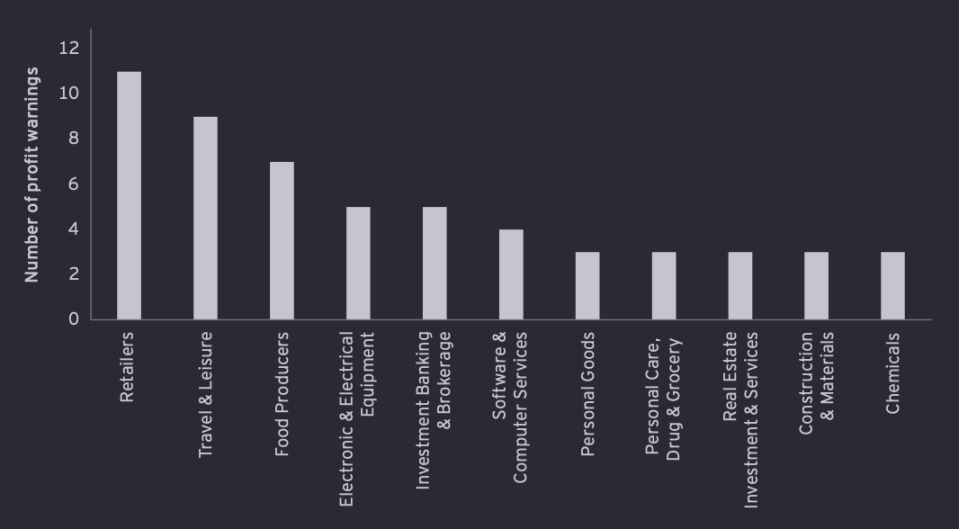Brits cutting spending sends profit warnings soaring

Brits cutting spending in response to the cost of living crunch has driven a sharp uptick in the number of businesses warning profits will fall short of expectations, a new report out today shows.
Some 86 listed companies issued a profit warning in the three months to September, up from 51 over the same period last year, according to consultancy EY.
Warnings were concentrated among consumer-focused firms, mainly sparked by consumers reining in spending in response to soaring prices and energy bills eroding their finances.
EY said “many companies saying that they are struggling to pass on price increases to customers, while falling consumer confidence and changing buying behaviour featured in 50 per cent of warnings”.
The survey illustrates the damaging impact the weakening economy is having on some of the UK’s largest businesses.
FTSE-listed retailers hit hard by weaker consumer

Inflation has soared to its highest level in 40 years, hitting 10.1 per cent last month and expected to keep rising.
Rising prices, combined with political instability, financial market chaos and elevated energy bills is prompting consumers to rein in spending to shore up their finances.
Retail sales last month fell 1.4 per cent to below pre-pandemic levels for the first time on record, mainly driven by a fall in food purchases.
Most economists think the UK will tip into recession soon, worsened by the government chopping and changing fiscal policy and prime ministers.
Jo Robinson, EY parthenon partner and UK and Ireland turnaround and restructuring strategy leader said: “Businesses are facing an unprecedented combination of headwinds including rising costs, slowing demand and excess supply.”
Third quarter profit warnings were last this high in 2008 when the global financial crisis swept through Britain’s corporate balance sheets.
EY also said the number of companies issuing their third profit warning hit 28. This is typically viewed as a sign a company is headed for insolvency.
Consumer-facing companies issued 44 warnings, the biggest total since the beginning of the pandemic.